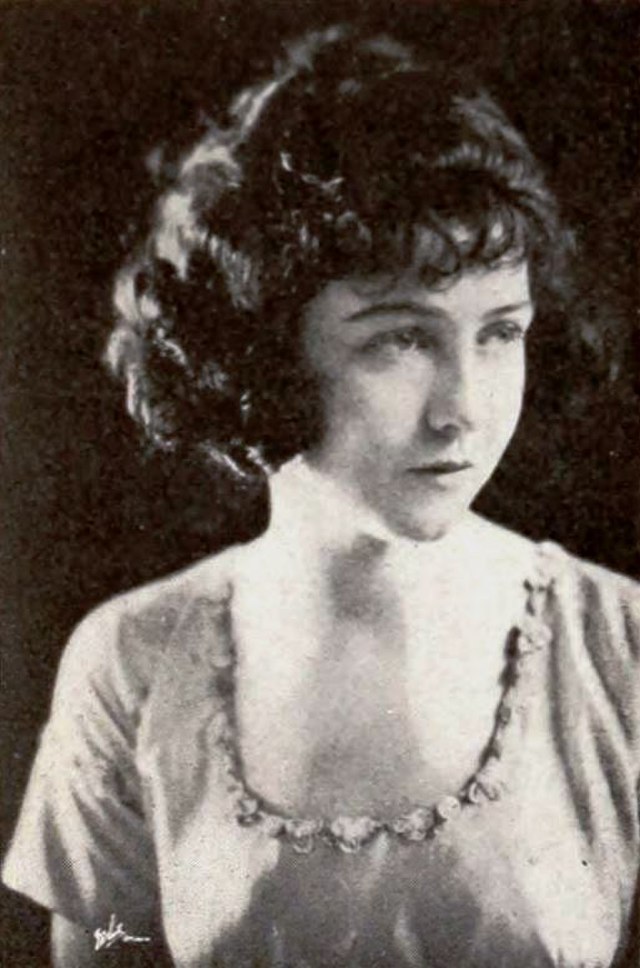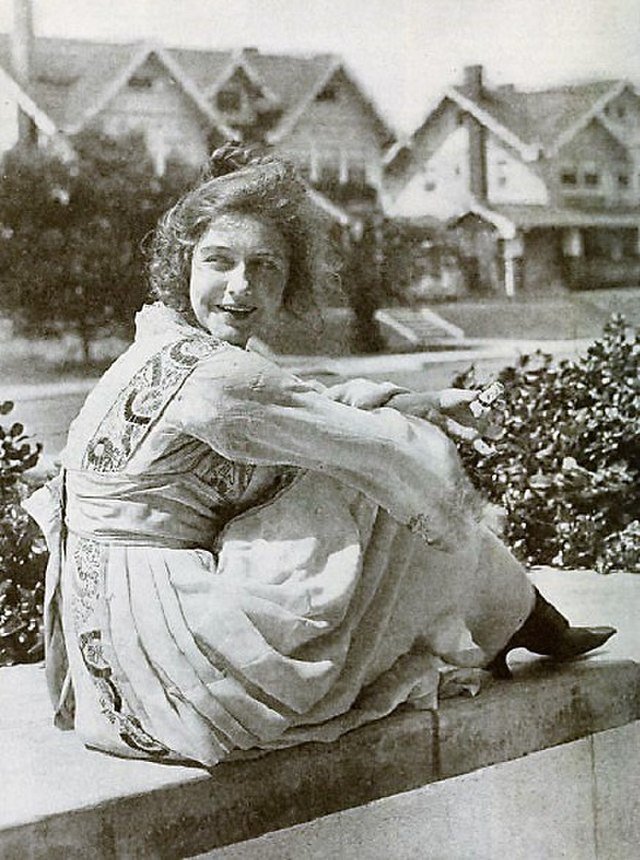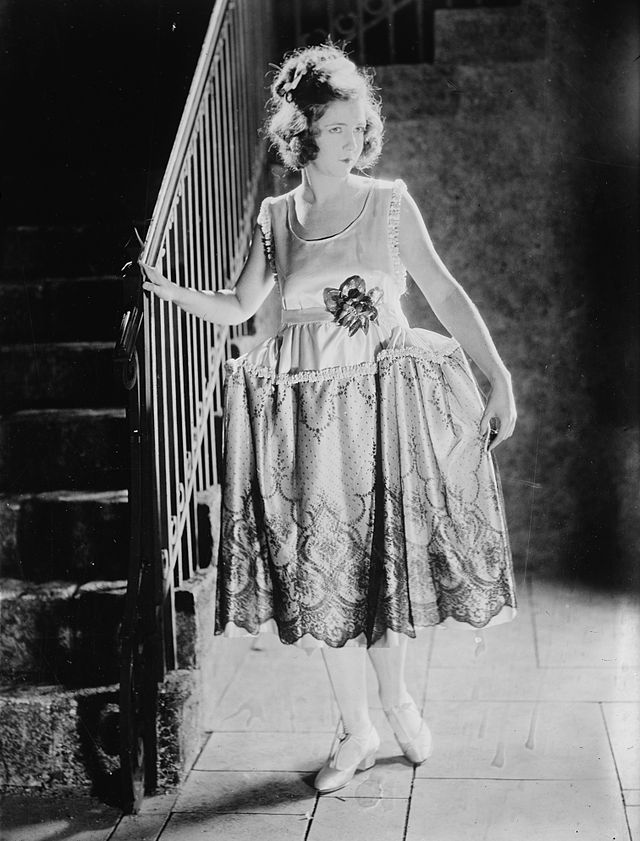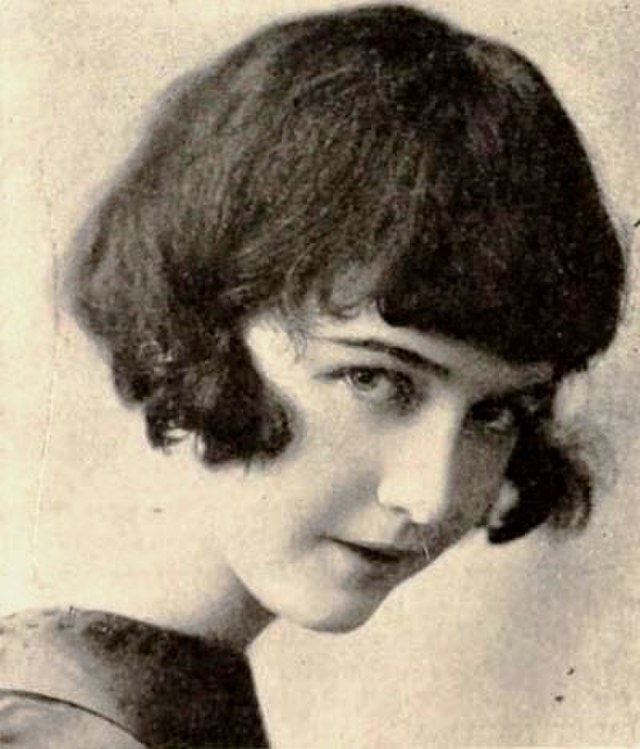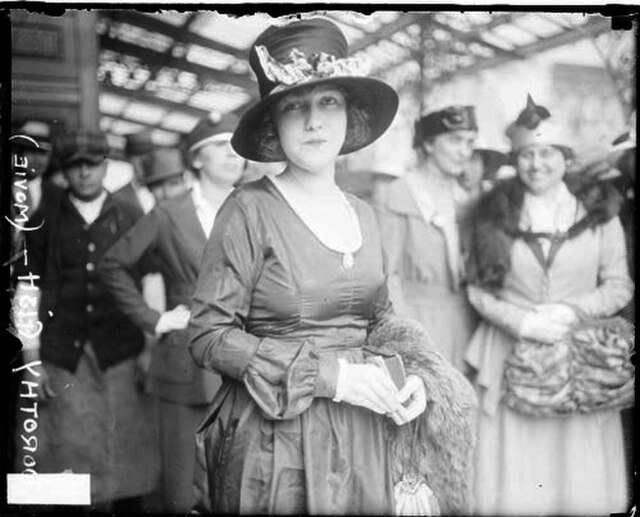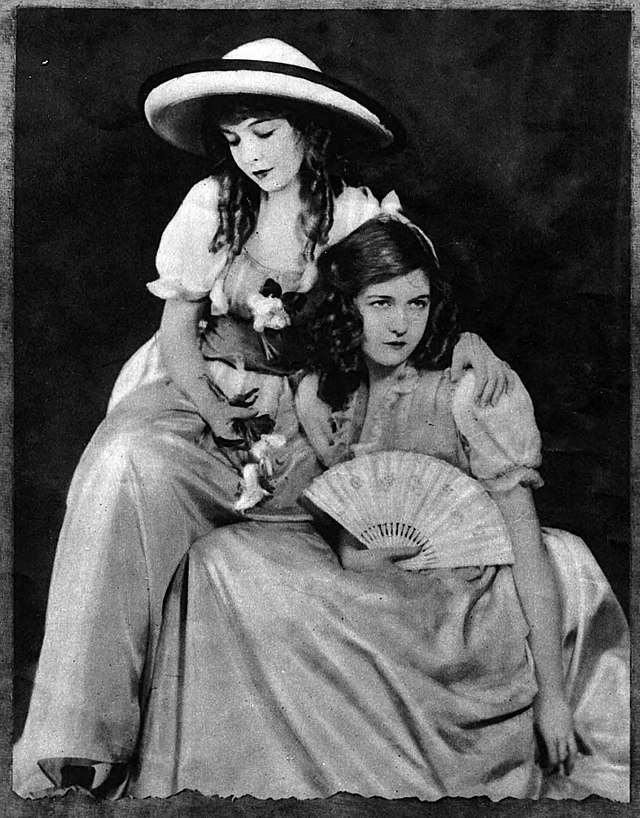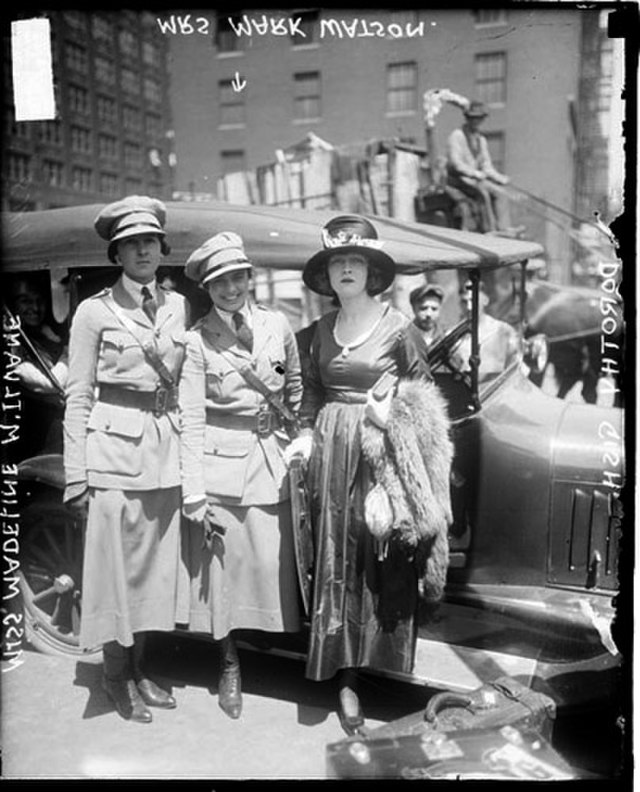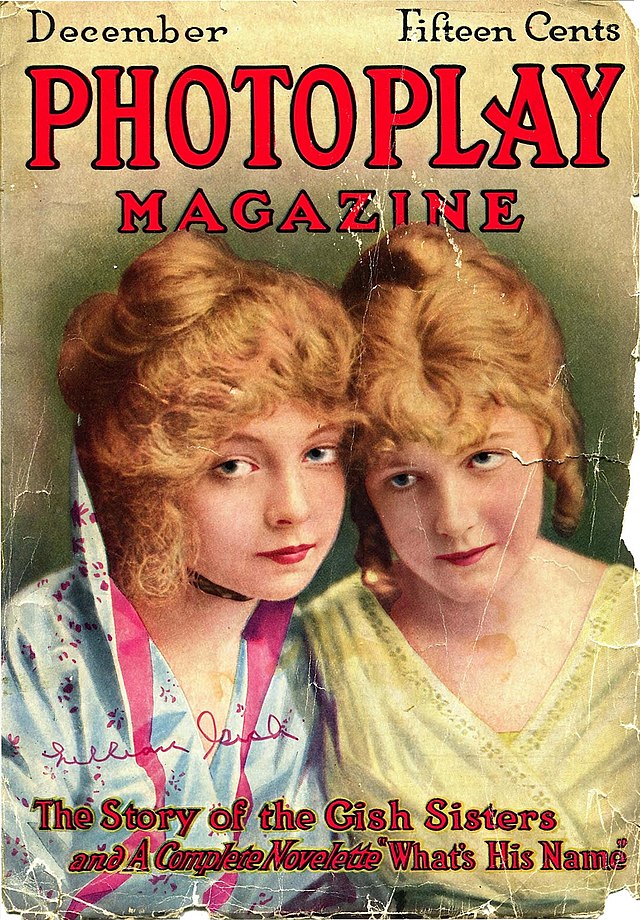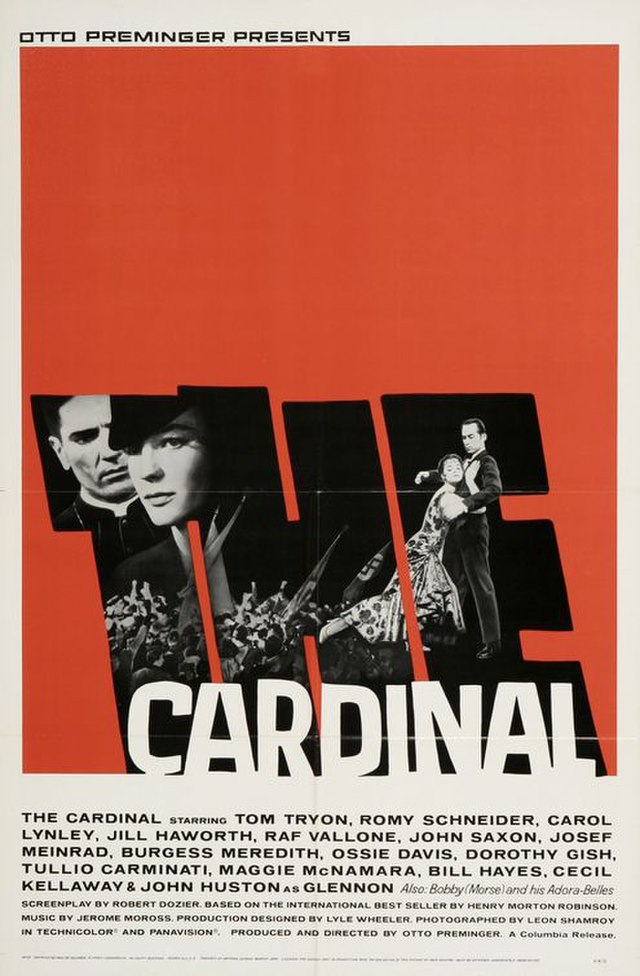Dorothy Gish
back| Full Name | Dorothy Elizabeth Gish |
| Stage Name | Dorothy Gish |
| Born | March 11, 1898 |
| Birthplace | Dayton, Ohio, USA |
| Died | June 4, 1968 |
| Buried | Saint Bartholomew's Episcopal Church, New York City, USA |
| Married to | James Rennie (1920–1935, divorced) |
| Children | None |
| Notable films | Hearts of the World (1918) - Orphans of the Storm (1921) - Madame Pompadour (1927) - Romola (1924) - The Cardinal (1963) |
Dorothy Gish
The Little Disturber
Dorothy Gish was a significant figure of the silent film era, known for her comedic timing and expressive performances.
Her work in Hearts of the World and Orphans of the Storm showcased her versatility and further cemented her place in the silent film industry. Although her career was overshadowed by her sister's, Dorothy was a star in her own right, bringing wit and charm to the screen.
She eventually transitioned to stage acting as silent films gave way to sound films. Dorothy also appeared in a few sound films later in her life, including The Cardinal (1963). She retired from acting in the 1940s but remained a beloved figure in Hollywood until her death in 1968.
Dorothy Gish was affectionately known as "The Little Disturber", a nickname derived from her standout role in the 1918 World War I film Hearts of the World, where she played a lively and mischievous French girl. This nickname captured her vivacious, playful energy and her knack for bringing humor and charm to her performances.
Related
Dorothy Gish (1898 – 1968)
Biography and Movie Career
Early Years and Family Background: Dorothy Elizabeth Gish was born on March 11, 1898, in Dayton, Ohio, to Mary Robinson McConnell and James Leigh Gish. Dorothy's family life was unstable from the start; her father abandoned the family when she was still very young, leaving her mother to raise her and her older sister, Lillian. To make ends meet, their mother took the girls to New York City, where she became involved in the theatre world.
It was through their mother's involvement in acting that both Dorothy and Lillian got their start in the entertainment industry. By the time Dorothy was four, she and her sister were performing on stage. Their early years were marked by the grind of traveling theater troupes, performing in vaudeville, and playing small roles in stage productions, which laid the foundation for their future success.
Path Towards Success: Dorothy’s entry into the film world came quite early. In 1912, she and her sister Lillian were introduced to pioneering director D.W. Griffith through their friend and fellow actress Mary Pickford. Griffith, known for his silent film masterpieces, was taken by the young actresses and cast both sisters in his short films. Dorothy’s screen debut came in the film An Unseen Enemy (1912). This launched her career, and for the next two decades, she became a significant figure in the silent film industry.
While Lillian often played dramatic roles, Dorothy found her niche in comedic parts. She was known for her expressive face, sharp timing, and lighthearted charm, which made her stand out in the silent film era, where facial expressions and physical acting were crucial. Some of her most important early films include Judith of Bethulia (1914) and Hearts of the World (1918), both directed by Griffith.
Despite her talent for comedy, Dorothy also showcased her dramatic abilities in films like Orphans of the Storm (1921), where she starred alongside Lillian in a story about sisters during the French Revolution. Dorothy’s performance won her wide acclaim, proving that she could handle weighty material as well as lighter fare.
Throughout the 1920s, Dorothy continued to build her reputation with roles in films such as The Bright Shawl (1923), Romola (1924), and Madame Pompadour (1927). Though she was not as widely celebrated as her sister Lillian, Dorothy's star was bright, and her versatility in film genres—from comedy to drama—gave her a lasting place in the hearts of audiences.
Personal Life and Marriage: In 1920, Dorothy married actor James Rennie. Rennie was a Canadian actor who had also made a name for himself in the silent film industry. The couple seemed well-matched at first, but the pressures of their careers and personal differences eventually caused strain in the relationship. Dorothy’s love for her work and the demands of Hollywood life meant that she and Rennie were often apart, and their marriage dissolved in 1935. They had no children, and after their divorce, Dorothy never remarried.
Dorothy’s relationship with her sister Lillian was one of the most important in her life. The two were not only close siblings but professional collaborators who supported each other throughout their careers. They lived together for much of their lives, and even after retiring from acting, they remained devoted to one another. Lillian often said that Dorothy’s spirit was lighter and more playful than her own, and she admired her sister’s resilience and wit.
Passions and Life After Film: After the advent of sound films in the late 1920s, Dorothy, like many silent film stars, found the transition difficult. Although she appeared in a few sound films, including The Cardinal (1963), she gradually withdrew from the spotlight. Her final film appearance was in The Whistle at Eaton Falls (1951).
Dorothy’s passion for the theater, however, never waned. In the 1930s and 1940s, she focused more on stage acting, performing in productions on Broadway and regional theaters. She found peace in the slower, more intimate world of stage work, away from the pressures of Hollywood. She also took a backseat to support her sister, Lillian, who became even more revered in the later years of her career.
Off the screen, Dorothy was known for her sense of humor, love of travel, and passion for life. Unlike her more reserved sister, Dorothy was described by friends as outgoing and fun-loving. She was also deeply private, avoiding scandal and maintaining a low profile outside her professional work.
Later Years and Death: Dorothy Gish spent her later years largely out of the public eye, living with Lillian in their New York apartment. She was known to be generous and kind, supporting charities and causes close to her heart. As she grew older, Dorothy developed health problems, though she remained active and cheerful as long as she could.
On June 4, 1968, Dorothy Gish passed away at the age of 70 from bronchial pneumonia. Her death was a significant loss to the acting world, though she had been largely retired for several years. Dorothy was laid to rest at Saint Bartholomew's Episcopal Church in New York City, where a small and private ceremony was held.
Dorothy’s legacy, though sometimes overshadowed by her sister’s, is one of immense talent and quiet determination. Her comedic genius, versatility in dramatic roles, and pioneering work in the early years of cinema have ensured her place in the history of film. Dorothy Gish remains a cherished figure from the golden age of silent movies, remembered for her grace, humor, and pioneering spirit.
Video Tribute Dorothy Gish:
Expressive Acting Style of Dorothy Gish
Dorothy Gish's acting style was defined by a unique combination of charm, expressiveness, and versatility that made her stand out during the silent film era. While her sister, Lillian Gish, became known for her delicate, ethereal performances, Dorothy’s style was livelier, more grounded in humor, and often imbued with a certain playfulness that made her a beloved figure in both comedic and dramatic roles.
Expressiveness and Physicality:
In silent cinema, where dialogue could not be conveyed verbally, actors relied heavily on facial expressions, body language, and gestures to communicate emotion and intent. Dorothy Gish excelled at this. Her face was incredibly expressive, capable of subtle nuances in emotion that helped her portray a wide range of characters, from mischievous heroines to vulnerable, tender figures. Her large, luminous eyes were particularly effective in conveying deep emotions, whether it was joy, sadness, or mischief.
Her physicality was another defining feature of her performances. Dorothy often played roles that required a great deal of movement and energy. She was known for her agile and dynamic movements, which she used to great comedic effect in many of her films. Her ability to communicate character traits and emotions through her body language made her a natural in physical comedy, where timing and exaggerated gestures were essential.
Comedic Timing and Playfulness:
Dorothy Gish’s comedic talent set her apart from many of her contemporaries. She had a natural ability to find humor in a scene, often through her playful use of facial expressions and her impeccable sense of timing. Her comedic performances were marked by a lightness and spontaneity that seemed effortless, yet were clearly the result of a deep understanding of the mechanics of humor.
In films like Hearts of the World (1918), where she played "The Little Disturber," Dorothy brought an irrepressible energy to the screen, providing much-needed comic relief amid the darker wartime narrative. Her characters often had a vivacious, impish quality, with Dorothy embodying a sense of fun and freedom, even in more serious contexts. This playful charm made her not only a skilled comedienne but also an endearing presence in more dramatic stories, where moments of levity were often crucial.
Versatility in Genre:
While she was primarily known for her comedic roles, Dorothy Gish was equally capable of handling intense dramatic performances. This versatility allowed her to move fluidly between genres, from romantic comedies to historical dramas. In films like Orphans of the Storm (1921), she demonstrated her ability to tackle more serious, weighty material. As Henriette, the blind sister in the film, Dorothy conveyed vulnerability and resilience with a quiet, understated power, proving that she could do more than just make audiences laugh.
Her dramatic roles often showcased a different aspect of her talent, with a focus on emotional depth rather than physical comedy. Yet, even in these more serious performances, there was often a softness and warmth to her characters that made them relatable and human. Dorothy had an uncanny ability to make audiences care about her characters, whether they were lively comedic figures or more somber, tragic ones.
Naturalism and Emotional Authenticity:
One of the most striking elements of Dorothy Gish’s acting style was her emotional authenticity. Unlike some silent film stars, who leaned towards melodramatic and exaggerated performances, Dorothy’s acting felt more natural and grounded. She avoided overacting, instead opting for subtle and believable expressions of emotion. This naturalism was ahead of its time, as early silent films often favored broader, more theatrical performances. Dorothy’s ability to portray real human emotions in a restrained yet powerful way gave her characters a sense of sincerity and depth.
In many ways, her approach to acting paved the way for more modern techniques that emphasized emotional truth and psychological realism over theatricality. Even though she worked in an era where actors often had to project emotions to the back row of a theater, Dorothy's performances managed to feel intimate and personal, engaging audiences on a deeper emotional level.
Collaboration with D.W. Griffith and Influence of the Silent Era:
Much of Dorothy Gish’s acting style was shaped by her collaborations with pioneering director D.W. Griffith. Griffith encouraged subtle, detailed performances from his actors, moving away from the exaggerated gestures that were common in early silent cinema. Under his guidance, Dorothy honed her ability to express complex emotions with minimal, precise movements. Her performances in Judith of Bethulia (1914) and Hearts of the World (1918) reflected this evolution, showing how she could convey layers of meaning through a glance or a small gesture.
As a silent film actress, Dorothy was also a master of the “close-up,” a technique Griffith popularized. In close-up shots, where every flicker of emotion on an actor’s face was magnified, Dorothy’s expressive features and ability to project emotion became even more important. These moments allowed her to connect with audiences in a deeply personal way, emphasizing her talent for creating a sense of intimacy on screen.
Dorothy Gish’s acting style remains a testament to the skill and artistry required in silent cinema. She had the rare ability to combine humor with emotional depth, and her performances displayed a timeless quality that still resonates today. Her naturalism, physicality, and talent for both comedy and drama helped to elevate her roles, and she left an indelible mark on the history of early cinema.
Though often overshadowed by her sister Lillian’s towering reputation, Dorothy Gish carved out her own distinctive place in film history. She remains a beloved figure not just for her comedic brilliance but for her ability to bring humanity and heart to the screen.
Personal Quotes
On Her Career:
- "I wanted to be a comedienne. I wanted to be different from Lillian."
This quote reflects Dorothy’s desire to carve out her own identity in the shadow of her more dramatic sister. While Lillian was known for her emotionally intense, serious roles, Dorothy thrived in light-hearted, comedic performances.
On the Silent Film Era:
- "We had to be actors—there was no sound to tell the story, so we had to use our faces and bodies to express what we meant."
Dorothy’s reflection on silent film acting highlights the physicality and expressiveness required in the absence of spoken dialogue, something she excelled at throughout her career.
On Acting and Success:
- "The stage was the thing that really mattered to me, more than pictures."
This quote speaks to Dorothy’s deep love for the theater, where she continued to perform even after her film career had slowed. Unlike many actors of her time, she maintained a strong connection to the stage, often finding more fulfillment there than in Hollywood.
On Her Sister, Lillian Gish:
- "Lillian was always the saint, and I was always the troublemaker."
Dorothy often joked about the contrasting public personas between herself and her sister, with Lillian viewed as the more serious, ethereal presence and Dorothy known for her mischievous, lively spirit.
On Comedy:
- "I think comedy is the hardest thing in the world to do, and to do it well. It's serious business to make people laugh."
As someone who specialized in comedic roles, Dorothy understood the challenges of comedy, recognizing it as an art form that required precision and skill.
Recognition for Dorothy Gish:
Dorothy Gish, while not as heavily recognized with formal awards as her sister Lillian, was nonetheless celebrated for her contributions to early cinema. Her talent as a comedic and dramatic actress was widely acknowledged during her career, though the nature of awards in the early days of Hollywood was quite different from the modern era. Here is an overview of the awards and recognition she received during her lifetime, as well as posthumous honors that have highlighted her importance in film history.
During Her Lifetime
- Recognition from Peers and the Industry:
Though the era of silent film did not offer many of the formal awards we associate with Hollywood today, Dorothy Gish was highly respected by her peers and colleagues. Directors like D.W. Griffith praised her comedic timing and dramatic abilities, and she was consistently cast in high-profile films throughout the silent era. - Fame and Popularity:
In the 1910s and 1920s, Dorothy Gish was a household name and one of the most popular actresses of her time. She received widespread acclaim for her performances, especially in films like Hearts of the World (1918) and Orphans of the Storm (1921). Her public recognition and status as a leading actress were significant forms of validation for her work, even though there were no formal industry awards to mark her success at the time.
Posthumous Honors and Recognition
- Hollywood Walk of Fame (1960):
Dorothy Gish was awarded a star on the Hollywood Walk of Fame for her contributions to motion pictures. This recognition, granted in 1960, remains one of the most visible acknowledgments of her importance in early Hollywood. Her star is located at 6385 Hollywood Blvd, close to her sister Lillian Gish’s star. - American Film Institute (AFI) Recognition:
While the American Film Institute (AFI) has primarily celebrated Dorothy's sister, Lillian, both Gish sisters are considered trailblazers in the development of early cinema. AFI’s educational programs, archives, and discussions often highlight Dorothy's contributions to silent films, particularly in her work with D.W. Griffith. - Museum and Retrospective Screenings:
Dorothy Gish’s films have been the subject of retrospective screenings and exhibitions at film institutions like the Museum of Modern Art (MoMA) in New York and the British Film Institute (BFI) in London. These screenings have often focused on the importance of the Gish sisters in shaping early cinema and the unique qualities Dorothy brought to her roles. - Legacy in Academic Study:
Film historians and scholars continue to recognize Dorothy Gish as a major figure in silent film history. Her performances are studied for their innovation in acting techniques, especially in terms of physicality and expressive subtlety. Books and academic works on silent cinema often include discussions of her key films and her collaborations with D.W. Griffith.
Movies Starring Dorothy Gish:
1910s
1912
An Unseen Enemy
Dorothy’s film debut, a short film where two sisters (played by Dorothy and Lillian Gish) are trapped by burglars in their home, trying to fend off an unseen threat.
1913
The Battle at Elderbush Gulch
A Western film directed by D.W. Griffith, where a frontier family finds themselves caught in a conflict between Native Americans and the U.S. cavalry.
1914
Judith of Bethulia
A Biblical drama directed by D.W. Griffith, telling the story of Judith, a Jewish widow, who seduces and beheads the enemy general Holofernes to save her city.
1915
Home, Sweet Home
A biographical film about the life of John Howard Payne, the author of the famous song “Home, Sweet Home,” showing how his work brings comfort to various troubled souls.
1916
Little Meena's Romance
A comedy short about a young woman (Dorothy) and her romantic misadventures.
Betty of Greystone
Dorothy plays a strong-willed woman who helps to expose corruption in a local community.
1918
Hearts of the World
A wartime love story directed by D.W. Griffith, set against the backdrop of World War I. Dorothy plays "The Little Disturber," a lively French girl who brings comic relief amidst the war's chaos.
1919
The Hope Chest
Dorothy stars as a working-class girl who fights for her rights and for love, showcasing her knack for physical comedy and light-hearted performances.
I'll Get Him Yet
A romantic comedy where Dorothy plays an heiress determined to win over a man who resists her advances.
1920s
1920
Remodeling Her Husband
Directed by her sister Lillian Gish, Dorothy stars in this comedy about a wife trying to change her husband's bad habits.
Nugget Nell
A lighthearted comedy where Dorothy plays a Western heroine who seeks fortune and romance in a mining town.
1921
Orphans of the Storm
One of Dorothy's most famous films, where she stars alongside Lillian Gish as sisters separated during the French Revolution. Dorothy plays Henriette, who is blind and dependent on her sister's care.
1923
The Bright Shawl
Dorothy plays a Cuban woman caught in a love triangle and political intrigue during the Cuban War of Independence.
1924
Romola
A historical drama set in Renaissance Florence, where Dorothy plays Tessa, a sweet and innocent girl whose life becomes intertwined with political plots and treachery.
1925
Clothes Make the Pirate
A comedic film where Dorothy plays a young woman who falls in love with a man pretending to be a pirate.
1927
Madame Pompadour
A romantic historical film where Dorothy stars as Madame Pompadour, the influential mistress of King Louis XV, navigating the intrigues of the French court.
1930s
1930
Wolves
A crime drama where Dorothy plays a woman caught in a web of gangsters and criminals, facing moral dilemmas and personal danger.
1932
Flying Devils
A dramatic film about daredevil stunt pilots and the risks they take, where Dorothy plays the love interest of one of the flyers.
1940s
1944
Our Hearts Were Young and Gay
A comedy based on the memoir of two young women traveling through Europe in the 1920s, with Dorothy playing one of the mothers.
1946
Centennial Summer
A musical romance set during the Philadelphia Centennial Exposition in 1876, with Dorothy playing the fun-loving Aunt Zenia.
1950s
1951
The Whistle at Eaton Falls
Dorothy plays a small-town widow in this drama about labor disputes in a factory town.
1960s
1963
The Cardinal
Dorothy’s final film role, where she plays the Cardinal’s mother in this epic drama about a young American priest’s rise within the Catholic Church during the tumultuous early 20th century.

